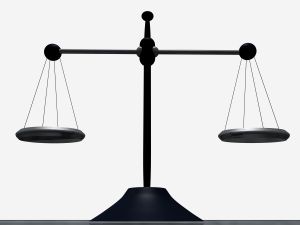
According to an article in the MetroWest Daily News, a woman charged with an OUI in 2012 is now seeking the sergeant’s personnel file as part of her defense. The woman crashed her car in Ashland in 2012 and was reportedly under the influence of alcohol at the time of the collision. The sergeant investigated the case. The woman filed a motion seeking the sergeant’s internal affairs reports, arguing that the records are relevant to his reputation for truth and veracity. The town of Ashland, however, has objected to the request, arguing that public records laws protect against disclosure of the information, and claiming that the records have nothing to do with the woman’s case and do not contain exculpatory information.
Under Rule 17 of the Massachusetts Rules of Criminal Procedure, a party may file a motion seeking third party records (i.e., records that are not in the custody of either the Commonwealth or the defendant). The standard for obtaining such records, however, is not whether they definitively contain exculpatory information. Rather, under the rule, the moving party must show that: (1) the records are relevant (i.e., tending to make a fact in the case more or less likely to be true); (2) the records are not otherwise procurable in advance of trial; (3) the party cannot properly prepare for trial without the records; and (4) the request for the records is made in good faith and is not intended as a general fishing expedition.
 Massachusetts Criminal Lawyer Blog
Massachusetts Criminal Lawyer Blog


 According to an article in the
According to an article in the  A Framingham man was arrested last week on various
A Framingham man was arrested last week on various  According to an article in the
According to an article in the  According to an article in the
According to an article in the  For a criminal charge to issue against an individual, a police officer must submit an application to the court for a criminal complaint. The application includes the alleged facts and the charges sought. A clerk magistrate then reviews the application to determine whether there is a sufficient basis for the complaint to issue. The specific legal standard is whether the information presented to the clerk magistrate establishes probable cause to believe that the individual committed a particular crime. If the clerk magistrate finds that there is probable cause, the complaint issues and the individual charged is brought to court and is arraigned on the charges.
For a criminal charge to issue against an individual, a police officer must submit an application to the court for a criminal complaint. The application includes the alleged facts and the charges sought. A clerk magistrate then reviews the application to determine whether there is a sufficient basis for the complaint to issue. The specific legal standard is whether the information presented to the clerk magistrate establishes probable cause to believe that the individual committed a particular crime. If the clerk magistrate finds that there is probable cause, the complaint issues and the individual charged is brought to court and is arraigned on the charges. According to an article in the
According to an article in the  A Framingham woman was arraigned on November 18th on charges of
A Framingham woman was arraigned on November 18th on charges of  On August 2, 2012, the Massachusetts legislature passed the
On August 2, 2012, the Massachusetts legislature passed the  The Supreme Judicial Court recently issued an important decision about the admissibility of opinion evidence in
The Supreme Judicial Court recently issued an important decision about the admissibility of opinion evidence in